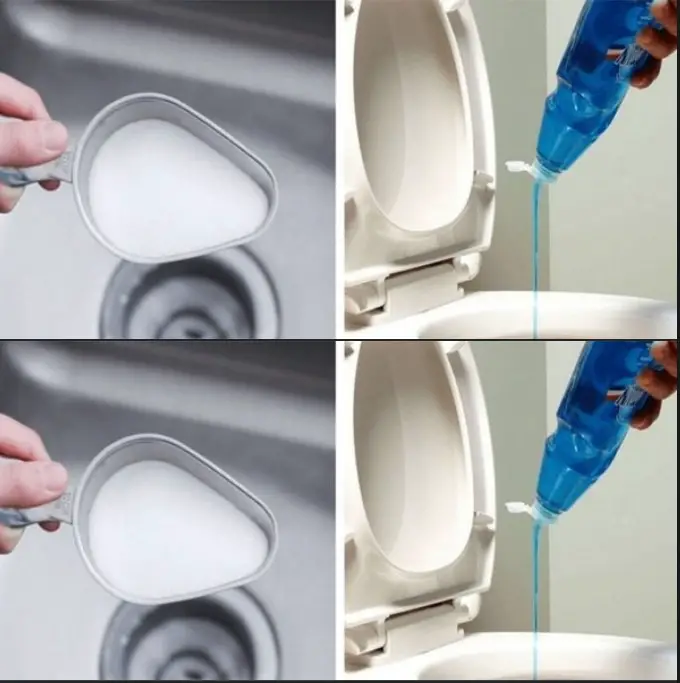Dealing with a clogged sink can be frustrating, especially when you want to avoid harsh chemical drain cleaners that may harm your plumbing and the environment. Fortunately, several natural and effective methods can help you unblock your sink and pipes safely. Here are five tips to get your drains flowing freely again:
1. Baking Soda and Vinegar
A classic combination, baking soda and vinegar create a fizzing reaction that can break down organic matter causing the clog.
Instructions:
- Remove Standing Water: If the sink is full, bail out as much water as possible to allow the solution to work directly on the clog.
- Add Baking Soda: Pour about one cup of baking soda into the drain.
- Add Vinegar: Slowly pour one cup of white vinegar into the drain. The mixture will fizz as it reacts.
- Cover the Drain: Place a drain plug or cloth over the opening to contain the reaction.
- Wait: Let the mixture sit for 15-30 minutes to break down the clog.
- Flush with Hot Water: Boil a kettle of water and carefully pour it down the drain to flush out the debris.
This method is effective for minor clogs and regular maintenance to keep your drains clear.
2. Salt and Hot Water
Salt’s abrasive nature can help dislodge debris, while hot water flushes it away.
Instructions:
- Pour Salt: Measure half a cup of table salt and pour it directly into the drain.
- Wait: Let the salt sit for about 15 minutes to work on the clog.
- Flush with Hot Water: Boil a kettle of water and carefully pour it down the drain to clear the loosened debris.
This simple method can be particularly effective for grease-related clogs in kitchen sinks.
3. Plunger
A plunger can create suction to dislodge clogs without the need for chemicals.
Instructions:
- Prepare the Sink: Ensure there is enough water in the sink to cover the plunger’s cup, creating a seal.
- Position the Plunger: Place the plunger over the drain, ensuring it covers the opening completely.
- Plunge: Push down and pull up vigorously several times to create suction and pressure.
- Check Drainage: Remove the plunger to see if the water drains. Repeat if necessary.
Plunging is effective for various types of clogs and is a good first step before trying other methods.
4. Cleaning the P-Trap
The P-trap (the U-shaped pipe under the sink) can accumulate debris over time, leading to clogs.
Instructions:
- Place a Bucket: Position a bucket under the P-trap to catch any water or debris.
- Loosen the Slip Nuts: Use pliers or a wrench to loosen the nuts on both ends of the P-trap.
- Remove the P-Trap: Carefully remove the trap and empty its contents into the bucket.
- Clean the Trap: Use a brush to scrub the inside of the trap, removing any buildup.
- Reassemble: Reattach the P-trap, ensuring the slip nuts are tightened securely.
- Test for Leaks: Run water to check for leaks and ensure proper drainage.
Regularly cleaning the P-trap can prevent clogs and maintain optimal drainage.
5. Drain Snake (Auger)
A drain snake can reach deeper clogs that other methods might not clear.
Instructions:
- Insert the Snake: Feed the end of the snake into the drain until you feel resistance from the clog.
- Rotate and Push: Turn the handle clockwise to break up the clog while gently pushing the snake further into the pipe.
- Retrieve the Debris: Once the resistance lessens, slowly pull the snake out, bringing the clog material with it.
- Flush the Drain: Run hot water to flush any remaining debris.
Using a drain snake is effective for stubborn clogs located deeper in the plumbing system.
Preventive Measures
To minimize future clogs, consider the following preventive steps:
- Avoid Pouring Grease Down the Drain: Grease can solidify and cause blockages. Dispose of it in a container and throw it in the trash. EatingWell
- Use Drain Strainers: Install strainers to catch food particles, hair, and other debris before they enter the pipes.
- Regular Maintenance: Periodically flush drains with hot water and use natural cleaning solutions to prevent buildup.
By adopting these natural methods and preventive measures, you can effectively unclog your sink and maintain clear pipes without relying on harsh chemicals.

